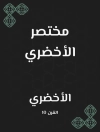The Younger Edda, also known as Snorre’s Edda or The Prose Edda, is a cornerstone of Old Norse literature that meticulously preserves the rich tapestry of Norse mythology and poetic tradition. This seminal text, composed in the early 13th century, reflects a shift towards prose narrative in a culture steeped in oral tradition, presenting myths, gods, and heroic legends through an accessible yet sophisticated literary style. Its structure combines various elements, including mythological tales, wisdom literature, and metrical verse analysis, effectively serving both as a literary anthology and an educational guide for aspiring poets of the era. Written by the Icelandic historian and poet Snorri Sturluson, The Younger Edda emerged from a context of profound political and cultural change. Sturluson himself was deeply intertwined with the ruling chieftains of his time, and his work aimed to preserve the sagas and skaldic traditions amid the decline of pagan beliefs. As a scholar well-versed in both Christian and Norse influences, Sturluson’s duality captures the tensions present in medieval Nordic society, making his insights invaluable for understanding this pivotal period. I wholeheartedly recommend The Younger Edda to anyone interested in Norse mythology, medieval literature, or cultural history. This work not only serves as an essential reference for scholars but also engages general readers with its rich narratives and explorations of heroic ethos. By delving into Sturluson’s text, readers will find themselves navigating the depths of a fascinating mythic world that continues to resonate across generations.
Mengenai Pengarang
Snorri Sturluson (1179–1241) was an Icelandic historian, poet, and politician, renowned for his contributions to medieval Scandinavian literature. His name is most closely associated with the ‘Prose Edda’ or ‘The Younger Edda’, one of the most significant sources of Norse mythology and a crucial text for understanding Old Norse prose. Sturluson’s ‘Prose Edda’ is distinguished not only by its comprehensive account of Norse myths but also for the detailed poetics contained within, offering insights into the skaldic poetry traditions of his time. His works are considered masterpieces for their structure, and the fusion of high narrative art with historical detail. Sturluson’s ability to blend past legends with his contemporary culture showcases his mastery in literature and historiography. In addition to the ‘Prose Edda’, which was intended as a handbook for aspiring poets to understand the subtleties of scaldic verse, Sturluson authored the ‘Heimskringla’, a chronicle of the Norwegian kings, which reflects his exceptional narrative skill and use of historical and legendary sources. Despite his literary achievements, Snorri’s career as a lawspeaker at Iceland’s Althing and his involvement in Icelandic politics is marked by complexity and controversy. His political entanglements eventually led to his demise, yet his literary legacy endures, cementing his reputation as one of the foremost figures in medieval Scandinavian culture (Faulkes, 1995).












